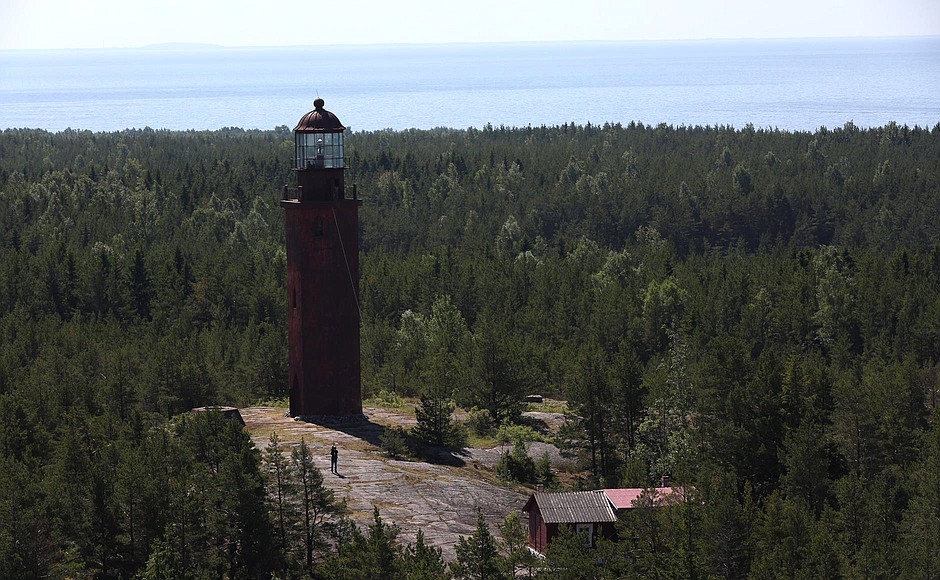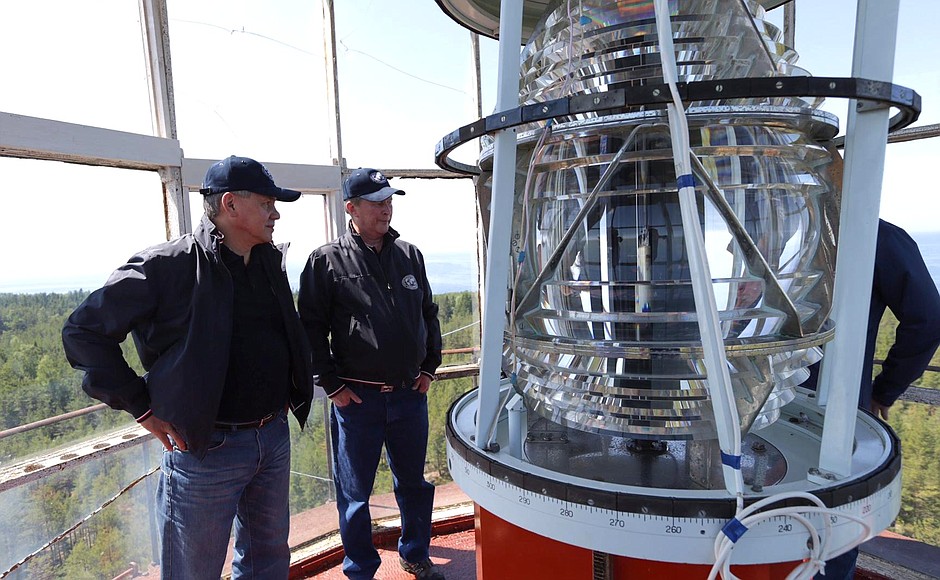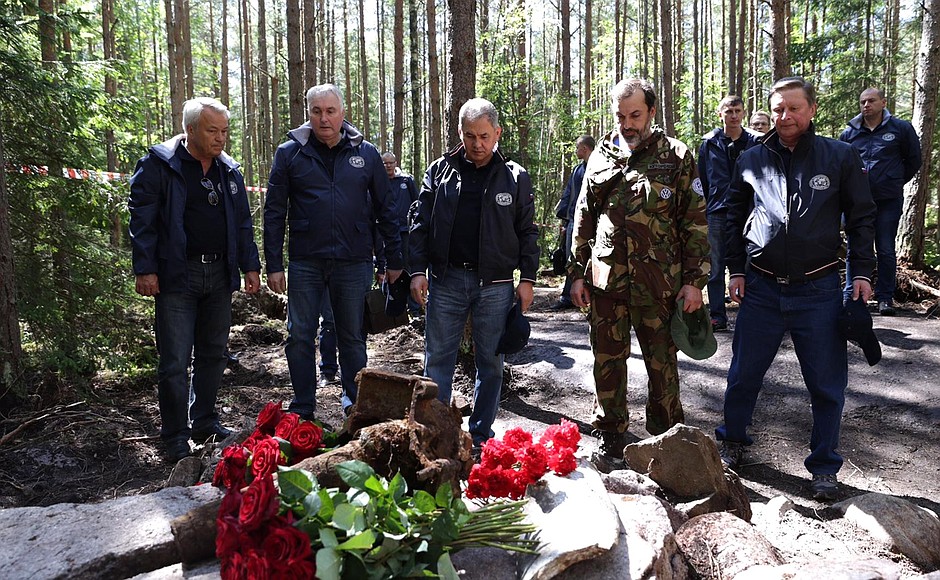Sergei Ivanov visited an ancient lighthouse, the only building that still stands on the island. The lighthouse was built in 1904 and is badly in need of repair. The Chief of Staff of the Presidential Executive Office called for renovating the lighthouse without delay and for granting it the status of a historical heritage site.
Next Sergei Ivanov went to a site where early this year volunteers found a Petlyakov Pe-2 light bomber, downed by the Nazis in 1943, and the remains of its crew. The Chief of Staff of the Presidential Executive Office laid flowers at the impromptu memorial. RGS expedition members told him that the remains of the Pe-2 crew would be buried with military honours on day of the anniversary of the beginning of the Great Patriotic War.
Sergei Ivanov also met with members of the Hogland expedition of the Russian Geographical Society and discussed environmental issues with them. Mr Ivanov, who also chairs the organising committee of the Year of the Environment to be held in Russia in 2017, suggested that conservation status be granted to the external Russian islands in the Gulf of Finland and that a protected area or national park be created there. He cited the example of the Land of the Leopard National Park in the Russian Far East.
While speaking about household waste, which is a big problem on Hogland, the largest of the 14 external Russian islands in the Gulf of Finland, Sergei Ivanov proposed using the experience of Scandinavia where small vessels remove garbage from islands on a weekly basis.
The Hogland expedition is studying the geography, geology, biology and the cultural and historical heritage of the 14 external Russian islands in the Gulf of Finland. This year, this research project has been complemented with the first clean-up operation in the islands’ history, organised by RGS volunteers.



